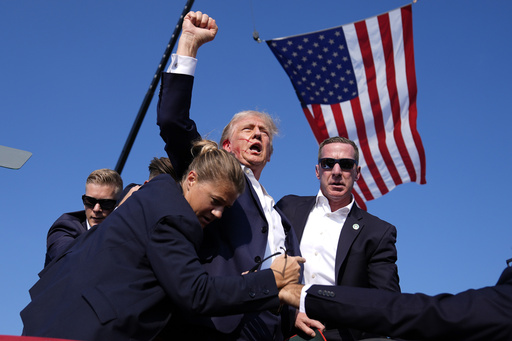Months before an armed individual targeted Donald Trump at a campaign rally in rural Pennsylvania, some state legislators had introduced a bill to ban the rifle used in the attack. The proposed legislation did not progress to a vote, reflecting Pennsylvania’s longstanding deadlock on gun regulations due to political divisions. The recent shooting at Trump’s rally, resulting in a fatality and injuries, is unlikely to bring about changes in the state’s firearm laws.
Democratic Representative Ben Sanchez expressed disappointment at the state’s existing gun laws, which he believes are insufficient. While many states have enacted new gun regulations this year, Pennsylvania continues to struggle to pass significant gun policy changes.
Despite sporadic bipartisan agreements, such as laws relating to domestic violence and security grants post a mass shooting, Pennsylvania has faced challenges in passing substantial gun control measures. Examples include failed bills on banning rapid-fire trigger devices and requiring reporting of lost or stolen firearms.
In response to the shooting incident at the rally, Pennsylvania Attorney General Michelle Henry urged lawmakers at both state and federal levels to implement assault weapons bans. However, such bans face political challenges due to the symbolism attached to firearms like the AR-15.
Trump, in his speech at the Republican National Convention following the shooting, did not address gun policies. Some of his supporters remain cautious of further gun restrictions, emphasizing the importance of mental health resources alongside gun regulations.
Research on the effectiveness of state-level assault weapon bans is inconclusive, with various gun policies showing differing impacts on gun-related incidents. The aftermath of high-profile shootings often prompts discussions on gun regulations, offering opportunities to reassess existing legal frameworks surrounding firearms.
This website uses cookies so that we can provide you with the best user experience possible. Cookie information is stored in your browser and performs functions such as recognising you when you return to our website and helping our team to understand which sections of the website you find most interesting and useful.
